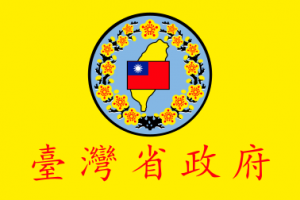Language/Min-nan-chinese/Vocabulary/Feelings-and-Emotions
Hi Min Nan Chinese learners! 😊
In this lesson, we will be learning about feelings and emotions in Min Nan Chinese. Understanding emotions is crucial in communication as it helps us express ourselves and connect with others. By the end of this lesson, you will be able to express yourself better and understand others when they express how they feel. Let's get started!
Take a moment to explore these relevant pages as you conclude this lesson: Food & Drinks.
Basic emotions[edit | edit source]
The following are some of the basic emotions you are likely to come across. These emotions are universal, and you will find it easy to express them in Min Nan Chinese as they are intuitive.
| Min Nan Chinese | Pronunciation | English |
|---|---|---|
| 高兴 | gāu-hìng | happy/joyful |
| 担心 | tàm-sim | worried |
| 生气 | siâⁿ-khì | angry |
| 悲伤 | pî-siong | sad |
| 害怕 | hài-phah | scared/afraid |
Here is an example dialogue to show how you can use these basic emotions when talking to someone.
- Person 1: 我今天很高兴!(I'm very happy today!)
- Person 2: 很好!你为什么这么高兴?(Great! Why are you so happy?)
- Person 1: 我刚刚听到了一个好消息。(I just received some good news.)
Complex emotions[edit | edit source]
These are feelings that are more complex and can be difficult to express in words. However, don't worry, Min Nan Chinese has some interesting expressions that you can use to convey these feelings.
| Min Nan Chinese | Pronunciation | English |
|---|---|---|
| 焦虑不安 | kiau-lua̍t bat an | anxious |
| 尴尬 | gān-ka | awkward |
| 着急 | tio̍h-kiat | nervous/hurried |
| 烦恼 | huân-ló | frustrated |
| 惊讶 | kéng-á | surprised/amazed |
Here is an example dialogue to show how you can use these complex emotions when talking to someone.
- Person 1: 你这次考试有信心吗?(Do you feel confident about this exam?)
- Person 2: 不太有信心,我感觉有点焦虑不安。(Not really, I feel a bit anxious.)
Cultural expressions[edit | edit source]
Culture is a big part of communication, and feelings and emotions can be heavily influenced by culture. Here are some cultural expressions that will give you a deeper understanding of Min Nan Chinese culture.
| Min Nan Chinese | Pronunciation | English |
|---|---|---|
| 下不来台 | īa bô lâi Tâi | Losing face in front of others |
| 勉强 | bián-kiàng | To do something reluctantly |
| 羞耻 | siû-si | Shame/Embarrassment |
| 客套 | kheh-thô | polite/formal expressions |
| 面子 | biān jí | face/dignity |
Here is an example dialogue to show how you can use cultural expressions when talking to someone.
- Person 1: 你要不要尝试说一点诗词?(Do you want to try reciting some poetry?)
- Person 2: 万一我念错了,我可没面子。(What if I recite it wrong? I'll lose face.)
Tips to improve your emotional intelligence in Min Nan Chinese[edit | edit source]
To improve your emotional intelligence in Min Nan Chinese, try these tips:
- Watch movies or TV shows that portray different emotions and listen carefully to how the actors portray them.
- Use Polyglot Club to find native speakers and ask them any questions you have about emotions.
- Listen to music that conveys different emotions and pay attention to the lyrics.
Summary[edit | edit source]
In this lesson, we learned about basic and complex emotions that are commonly used in Min Nan Chinese, cultural expressions that convey certain emotions, and tips to improve your emotional intelligence. Remember, emotions are an important part of communication, and understanding them will help you better express yourself and connect with others in Min Nan Chinese.
➡ If you have any questions, please ask them in the comments section below.
➡ Feel free to edit this wiki page if you think it can be improved. 😎

